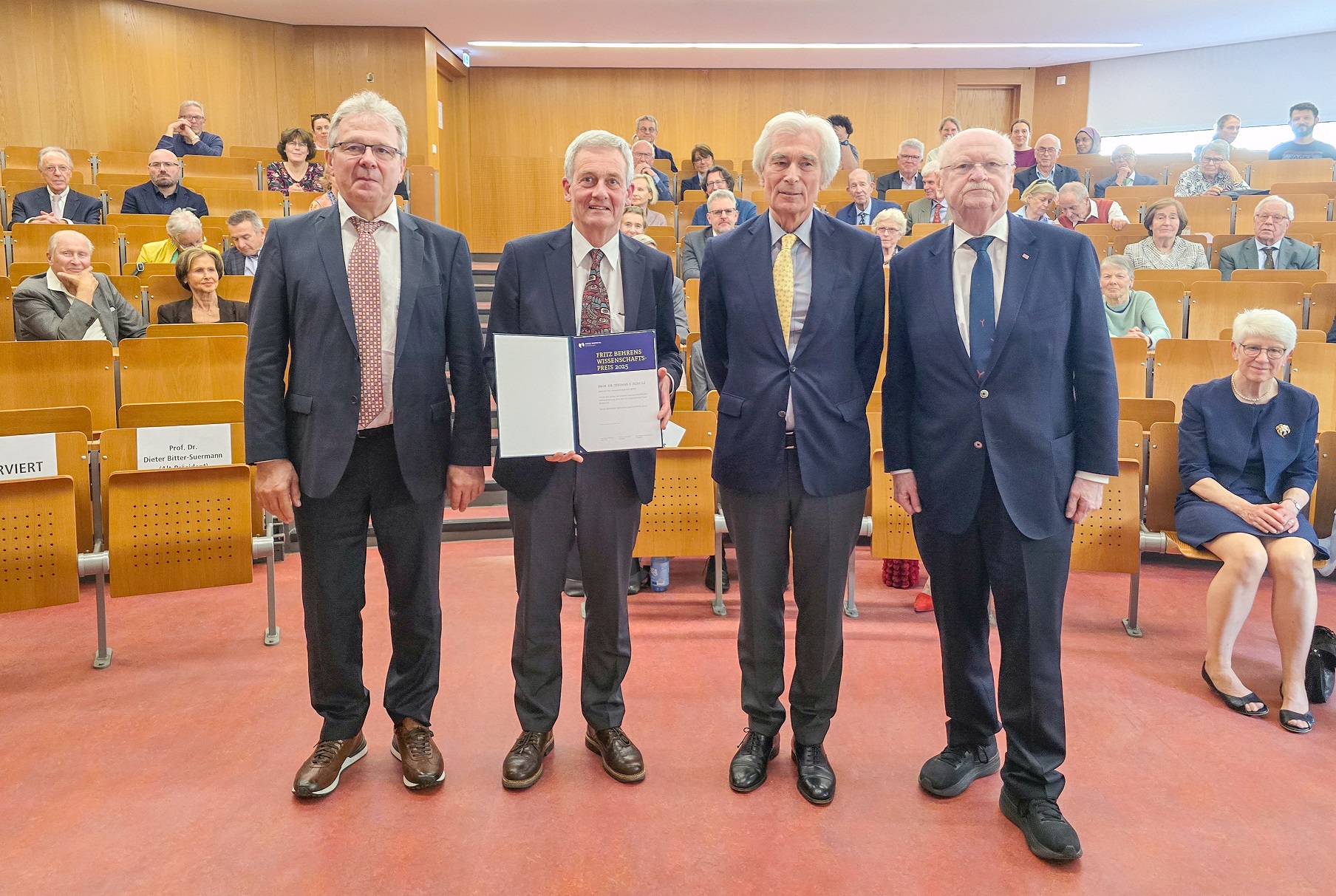Committed to people, dedicated to progress: MHH virologist honoured with award for his life's work.

Professor Förster, Professor Schulz, Matthias Fontaine and Professor Manns (from left). Copyright: Inka Burow/MHH
During the coronavirus pandemic, Prof Thomas F. Schulz was in particularly high demand as the virologist searched for active substances against SARS-CoV-2 and other coronaviruses. Until last year, he headed the Institute of Virology at Hannover Medical School (MHH). After 24 years as Institute Director, he now ‘only’ conducts research as a senior professor with his working group in the RESIST (Resolving Infection Susceptibility) Cluster of Excellence, of which he is co-spokesperson. RESIST aims to better understand individual susceptibility to infections in order to prevent, diagnose and treat infections on a ‘customised’ basis. Professor Schulz has now been awarded the prestigious Fritz Behrens Foundation Science Award for his life's work, which focused on human carcinogenic viruses.
‘They still exist: the good news,’ said the Chairman of the Fritz Behrens Foundation Matthias Fontaine at the ceremony at the MHH in April. He was referring to the fact that the cooperation between the foundation and MHH is bearing fruit. The Fritz Behrens Foundation from Hanover has been supporting people in difficult life situations for more than 100 years and promotes social commitment, culture and research in line with the founder's motto ‘Committed to people, committed to progress’. It has also supported numerous projects at the MHH for many years, including the establishment of a trauma outpatient clinic and the skin bank. Every two years, the foundation awards the Science Prize, which is endowed with 30,000 euros.
Pioneer of virology
In his laudatory speech, Professor Reinhold Förster, Director of the MHH Institute of Immunology and spokesperson for RESIST, called Professor Schulz a ‘pioneer of virology who has advanced the understanding of herpes viruses - and that as a lateral entrant!’ After all, Professor Schulz had worked as a specialist in medical microbiology, virology, infection epidemiology and in the field of research into the complement system, a part of innate immunity, before devoting himself to virology. In this field, research into the Kaposi's sarcoma-associated herpes virus has been at the centre of his scientific interest for the last thirty years.
‘I feel very honoured to receive this award,’ said Professor Schulz, who vividly explained his field of research in his lecture. Matthias Fontaine then presented him with the award in the presence of former MHH President Prof Dr Michael Manns, who represented MHH President Prof Dr Denise Hilfiker-Kleiner.
Text: Inka Burow